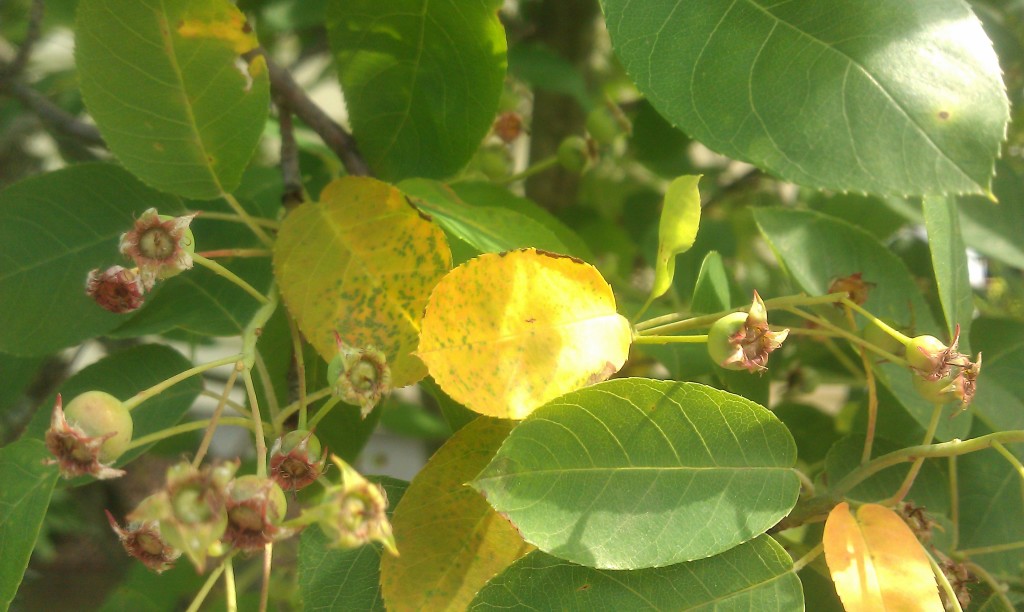APPLE SCAB
Venturia inaequalis
Apple Scab is a common landscape tree disease due to the popularity of the Crabapple tree. Although Apple Scab will not directly kill a Crabapple tree it can weaken the tree thereby making it susceptible to other, more harmful, disease or insect pests. The early leaf loss associated with Apple Scab will also reduce the aesthetic beauty of the Crabapple tree and, in some Crabapple varieties, will reduce the amount of flowering the following spring.
TREES INFECTED BY APPLE SCAB
There are several hundred varieties of Crabapple that have been hybridized over the years. Some varieties of Crabapple are highly resistant to Apple Scab, while certain other varieties are quite susceptible. Apple and Mountain-Ash trees, Cotoneaster, Service Berry and Firethorn (Pyracanthas sp.) shrubs can also be infected by Apple Scab.
SYMPTOMS
Leaves infected by Apple Scab will develop olive-green or brown spots from May through early June. As the Apple Scab infection progresses some leaves will turn yellow and drop prematurely. The blossoms and fruit of infected plants may also develop similar symptoms. Highly infected Crabapple trees may lose most of their leaves by July.
HOW TO CONTROL APPLE SCAB
The Apple Scab disease spores that infect leaves in the spring are produced on fallen leaves from the previous year. Raking and removing infected leaves in the fall will reduce the number of disease spores in the vicinity of the Crabapple tree the following spring.
Foliar fungicide treatments can reduce Apple Scab infection. A series of 3 fungicide treatments, applied at 7 – 14 day intervals, between bud swell and bud break can significantly reduce Apple Scab infection. Homeowners can apply a non-commercial grade fungicide like this for smaller trees.
Applying fungicide treatments after the spring window of control will prevent newer leaves from becoming infected, but the visible results will be minimal. In this case, fertilizing the plant may help to maintain health and vigor through the remainder of the summer and fall.
When planting a Crabapple choose a variety that is known to be resistant to Apple Scab. A local nursery should be able to provide a list of Apple Scab resistant Crabapple varieties.
Information provided by National Arborists Assocation @ www.natlarb.com



